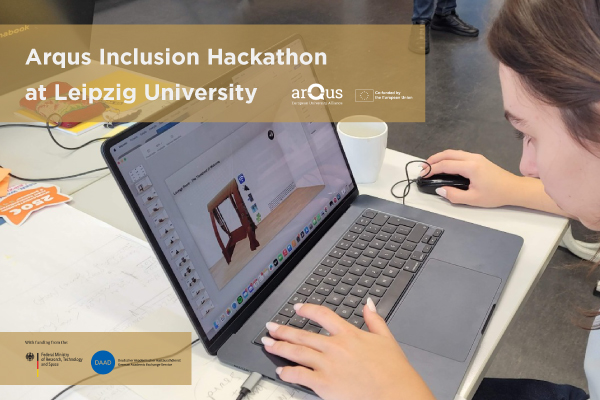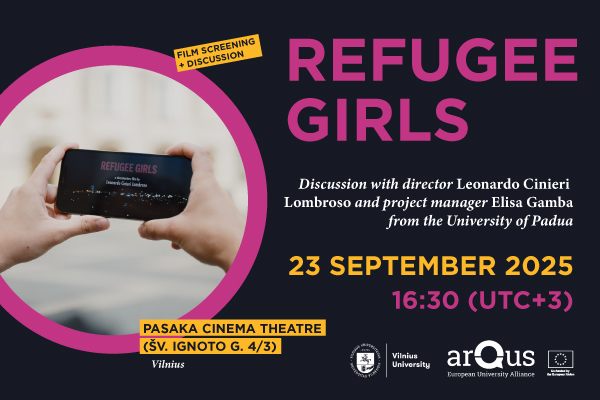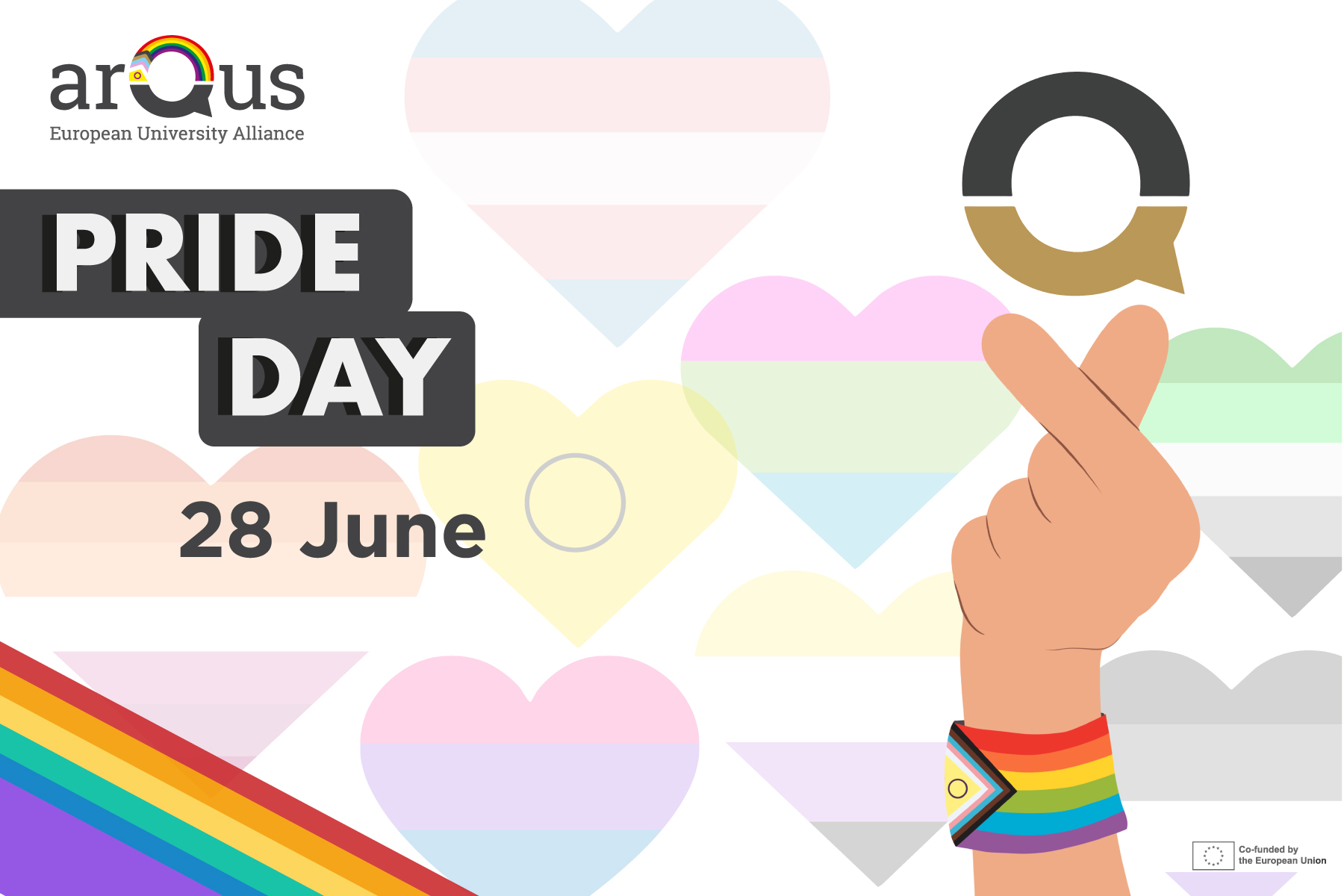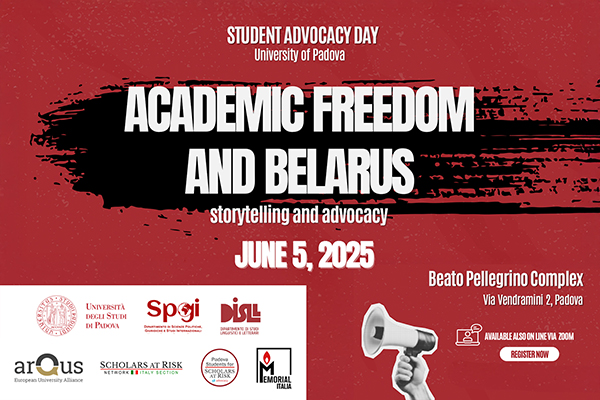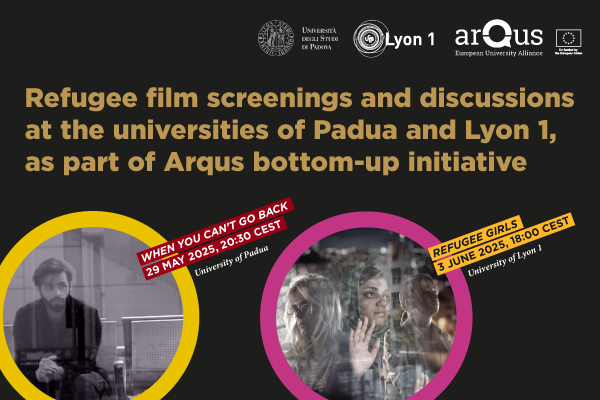
Explore our dedication to fostering inclusivity and diversity within the Arqus Alliance. Discover our initiatives and resources by navigating through the menu below. Click on any category to learn more about our diverse actions and programs aimed at creating a more inclusive academic environment.
Discover our work
Accessible digital repository of inspiring learnings
This digital repository (within the Arqus virtual environment) captures and makes accessible the results and lessons learned from all Arqus activities. It is continuously populated with materials.
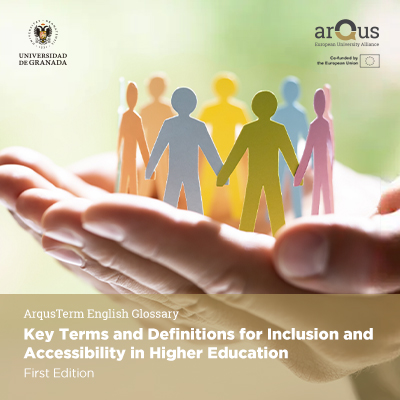
English Glossary on Inclusion and Accessibility in Higher Education
The Language Tools group is part of the Arqus Plurilingual and Intercultural Hub and the Language Services Unit (USL). They have produced together with the Vice-Rectorate for Internationalization of the University of Granada (UGR) the ArqusTerm English Glossary: Key Terms and Definitions for Inclusion and Accessibility in Higher Education.
This practical glossary is intended to provide a basis for discussion and development in the field of inclusion and accessibility, both within the Alliance and in other Higher Education bodies.
Preventive Early Career Education
During the first period of Arqus Alliance (Arqus I, 2019-2022), partner universities shared best practices and existing intervention models with primary and secondary school pupils, teachers and career advisors. The main goal was to increase primary school pupils’ knowledge of professional activities and role models, improving their self-determination, autonomous capacities to choose, and soft skills from very early stages.
During Arqus I, partner universities also shared best practices for outreach activities for primary and secondary education and developed common guidelines. Some of the aims of these activities were: to awaken in children the joy of learning about the world; to form their values and broaden their horizons; to reveal talents and develop critical thinking; and to show children the possibilities from which they can choose their future path.
Recognition of Prior Learning is a guideline for recognising and transferring credits for accredited professional and work experience, thus facilitating access of older students with work experience to university. During Arqus I, the recognition of non-formal and informal learning focused on the common structure, methodology, and guidelines for the recognition of non-formal and informal learning for the purpose of credit accumulation.
Arqus Support Networks for Inclusion
This informative guide is the result of a detailed mapping of the existing networks for inclusion in all Arqus universities. The final expected outcome of the activity was the creation of this common information tool to collect and present all available services within the alliance.
Integrated Arqus Plan for Refugees and Students at Risk
During Arqus I this framework was developed by the task force “Enabling refugees”, which was set up to develop inclusive strategies that would help dismantle barriers in Higher Education and strengthen academic opportunities for refugee students.
Guidelines for Senior Universities were developed during Arqus I in order to collect best practices from Arqus universities in activities targeting senior students, establishing shared guidelines and exploring opportunities for joint programmes, both online and offline.
During Arqus I partner universities shared models of preventive early career education through the training of experts and shared resources. In developing these guidelines and recommendations for an inclusive peer tutoring programme, they focused on the following areas: aiding student transition; creating an inclusive learning and teaching environment; reducing dropouts and increasing exam activity; and assuring academic integration and engagement right from the start.
Fast track for gifted students
This final report is the result of an exhaustive analysis of current commitments, initiatives, and practices in the field of giftedness/excellence carried out by Arqus univeristies during the first stage of our alliance (Arqus I). The breadth of models and approaches make clear that the topic of gifted students and excellence is vast, with many different approaches both in literature and in practice.
Job market transition for inclusive universities
The transition from university to the labour market is a complex experience for all graduates, and even more so for those with fewer opportunities. One of the Arqus I main targets was to facilitate this transition phase, focusing especially on students with vulnerabilities. This document outlines some guidelines and recommendations to provide better career guidance programmes and support platforms to monitor services involved in the employment of graduates at risk of exclusion.
Inclusive Arqus
Check out the Arqus series of webinars on Inclusion and Diversity
Arqus Inclusion and Diversity Action Plan
The charter on Gender Equality, Inclusion and Sustainability was produced during the first funding period. It turns values and principles into goals, tasks, monitoring measures, etc., with a clear indication of responsibilities.
The action plan is under development and aims to outline strategic directions and specific measures to enhance inclusion and diversity within Arqus. It will be available upon completion.
Arqus Inclusion and Diversity Reports
The reports capture and make visible the evolution of I&D activities across the Arqus alliance in a systematic and accessible manner. Includes reports on inclusion-related modules/course/training events for students, vulnerable groups, trainers, professionals, co-designed and student-led activities.
Comprehensive reports documenting the progress and challenges in our inclusion and diversity initiatives will be published here. Check back for detailed insights and analysis.
Action Plan to support students and scholars at risk
The Arqus Action plan is based on pilot initiatives, programmes, and mentoring structures to enhance access, participation, and successful completion of studies as well as a quality university life in all its aspects for students and scholars at risk.
Arqus is committed to supporting at-risk students and scholars. After elaborating the first Action plan with a focus on Ukraine, we are continuing our work towards the creation of a second action plan, currently in preparation, that will detail the steps Arqus is taking to provide crucial support to students and scholars at risk.
Check here the Arqus Action Plan for Ukrainian refugees and students and scholars at risk in collaboration with NaUKMA.
Professional Development Plan for Arqus Communities of Practice (CoPs)
A Plan including different professional development activities targeting homogeneous staff categories as well as staff members from different offices/units with complementary expertise both within the individual partner universities and across the Alliance, for a more coordinated action towards inclusion.
Learning resources
A web space repository of learning resources on inclusion-related issues open to students, academic staff, non-academic staff and citizens is under development.
We are compiling valuable learning resources essential for fostering an inclusive educational environment. These resources will be made available here.
Contact and leadership
Meet the dedicated members of the Inclusion and Diversity Hub, spanning all nine Arqus partner institutions. Leading the efforts are Lucia Gennaro from the University of Padua and Conny Melzer from Leipzig University. Contact us at inclusion-hub@arqus-alliance.eu for support and inquiries.
